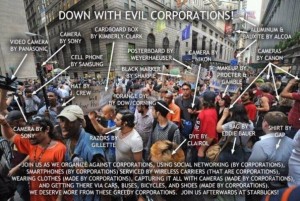The advent of Twitter, and the ultrafast word of mouth effect that it lends to our lives, has already changed the way that we view the world and the news forever. Some of the most important stories in modern times have broken, not on the AP Wires, but as simple tweets that gain popularity like snowballs. The rapidity with which a story can be distributed is completely mindblowing. A person can essentially read the goings on of the world with a well organized and diverse tweetdeck.
This cyber newspaper, however, is missing something that its woodpulp counterpart could never have survived without; a corrections and withdrawals section. In this world of fast breaking news, we used to rely on our newspapers to keep us current in the world. Our emerging counter habit is to use the internet; specifically twitter and facebook, now complete with their own news delivery services. A newspaper, though slower than the internet, still publishes enough mistakes to keep a constant corrections section. Twitter and Facebook do not stock these features, which are proven even more essential with the increasing rapidity of news distribution.
The ever vibrating web of influence on the internet has the ability to spray a bullshit story out of proportion before its author has time to think their words though. In the midst of delicate economic times a stock market can be affected by even the most frivolous of news stories; in other words the fodder of tweets and statuses. Though the idea of a renegade tweet crashing the indexes is certainly far fetched, the tools are there and the world is unpredictable. Twitter helped totter a government, if Facebook was a country it would be the world’s 3rd most populous, and Wikileaks appears more often than one would think in the annals of the Justice Department.
To compare these social networking sites to informative sites such as wikipedia, IMDb, or mainstream informative News sites is to compare apples to Microsofts. Wikipedia, and other sites employ full staffs of people each year to ensure their credibility and shield them from any type of legal action. Facebook, and other social networking sites employ no such staffs and never would in good conscience, to control a profile in any way would be very contrary to the social focus of the site.
While we all would like to assume that our friend’s tweet is the true and credible story, and that what we say really only affects what we want it to, the reality is that when the world becomes connected to the degree that we have come to, that we may all bear some part of the risk of the snowball effect.






